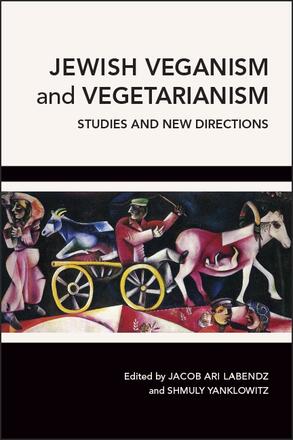
Jewish Veganism and Vegetarianism
Studies and New Directions
Alternative formats available from:
A multidisciplinary approach to the study of veganism, vegetarianism, and meat avoidance among Jews, both historical and contemporary.
Description
In recent decades, as more Jews have adopted plant-based lifestyles, Jewish vegan and vegetarian movements have become increasingly prominent. This book explores the intellectual, religious, and historical roots of veganism and vegetarianism among Jews and presents compelling new directions in Jewish thought, ethics, and foodways. The contributors, including scholars, rabbis, and activists, explore how Judaism has inspired Jews to eschew animal products and how such choices, even when not directly inspired by Judaism, have enriched and helped define Jewishness. Individually, and as a collection, the chapters in this book provide an opportunity to meditate on what may make veganism and vegetarianism particularly Jewish, as well as the potential distinctiveness of Jewish veganism and vegetarianism. The authors also examine the connections between Jewish veganism and vegetarianism and other movements, while calling attention to divisions among Jewish vegans and vegetarians, to the specific challenges of fusing Jewishness and a plant-based lifestyle, and to the resistance Jewish vegans and vegetarians can face from parts of the Jewish community. The book's various perspectives represent the cultural, theological, and ideological diversity among Jews invested in such conversations and introduce prominent debates within their movements.
Jacob Ari Labendz is Director of the Center for Judaic and Holocaust Studies and Clayman Assistant Professor of Judaic and Holocaust Studies at Youngstown State University. He is the editor of Jewish Property After 1945: Cultures and Economies of Ownership, Loss, Recovery, and Transfer. Shmuly Yanklowitz is President and Dean at Valley Beit Midrash, Founder and President of Uri L'Tzedek, Founder and CEO of the Shamayim V'Aretz Institute, and Founder and President of YATOM: The Jewish Foster and Adoption Network. He is the author of many books, including Pirkei Avot: A Social Justice Commentary, Postmodern Jewish Ethics: Emerging Social Justice Paradigms, and The Jewish Vegan.
Reviews
"[A] highly recommended collection of essays. " — Journal of Jewish Ethics
"Whether looking at the pages of the Talmud, vegetarian poems written in Yiddish, lyrics written by Jewish punk rockers, or into a pot of vegan matzo ball soup, this book explores the many ways in which Jews have questioned the ethics of eating animals. Labendz and Yanklowitz achieve their stated goal of exploring 'what distinguishes Jewish veganism and vegetarianism as Jewish. ' You do not have to be a vegetarian or a vegan (or Jewish!) in order to learn from, and indeed grapple with, the many questions, dilemmas, and readings that the contributors raise. " — Jordan D. Rosenblum, author of The Jewish Dietary Laws in the Ancient World
"Jewish Veganism and Vegetarianism offers theological, pragmatic, ethical, environmental, and other ways to view non-meat eating as a viable, healthy, and holy Judaic strategy to consume the world. Anyone who eats or thinks about eating should take this volume seriously. " — Rabbi Jonathan K. Crane, author of Eating Ethically: Religion and Science for a Better Diet
"From the Talmud's ambivalence about human and animal suffering to the challenges of making a vegan matzo ball, Jewish Veganism and Vegetarianism offers surprising views of the many ways Jewish practice, Jewish culture, and individual Jews acted and reacted in their encounters with a vegetable diet. This important and overdue book does much to introduce a long-neglected chapter of Jewish culinary practice and to inspire and instruct future research. " — Eve Jochnowitz, cotranslator of Fania Lewando's The Vilna Vegetarian Cookbook: Garden-Fresh Recipes Rediscovered and Adapted for Today's Kitchen